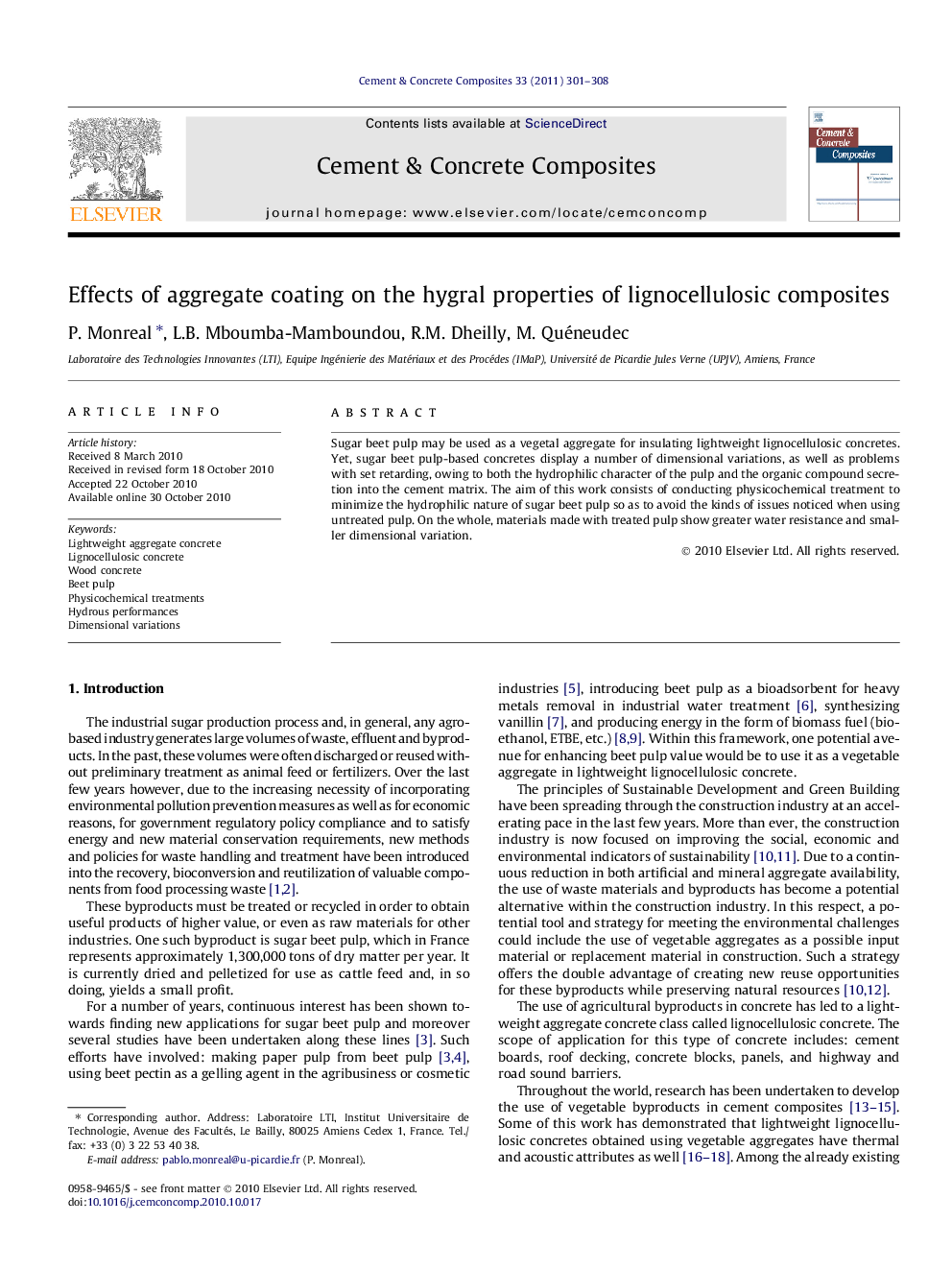| Article ID | Journal | Published Year | Pages | File Type |
|---|---|---|---|---|
| 10621925 | Cement and Concrete Composites | 2011 | 8 Pages |
Abstract
Sugar beet pulp may be used as a vegetal aggregate for insulating lightweight lignocellulosic concretes. Yet, sugar beet pulp-based concretes display a number of dimensional variations, as well as problems with set retarding, owing to both the hydrophilic character of the pulp and the organic compound secretion into the cement matrix. The aim of this work consists of conducting physicochemical treatment to minimize the hydrophilic nature of sugar beet pulp so as to avoid the kinds of issues noticed when using untreated pulp. On the whole, materials made with treated pulp show greater water resistance and smaller dimensional variation.
Related Topics
Physical Sciences and Engineering
Engineering
Industrial and Manufacturing Engineering
Authors
P. Monreal, L.B. Mboumba-Mamboundou, R.M. Dheilly, M. Quéneudec,
